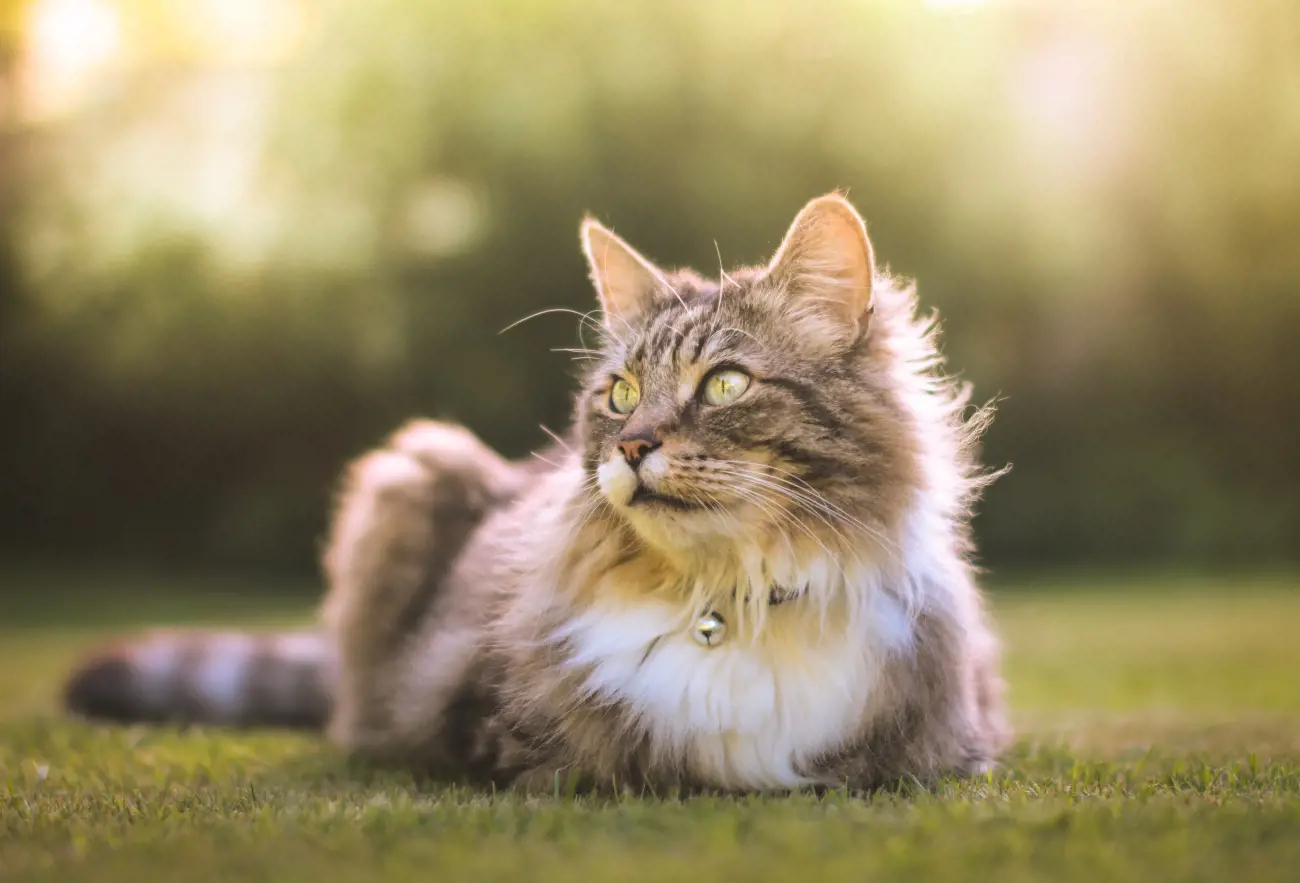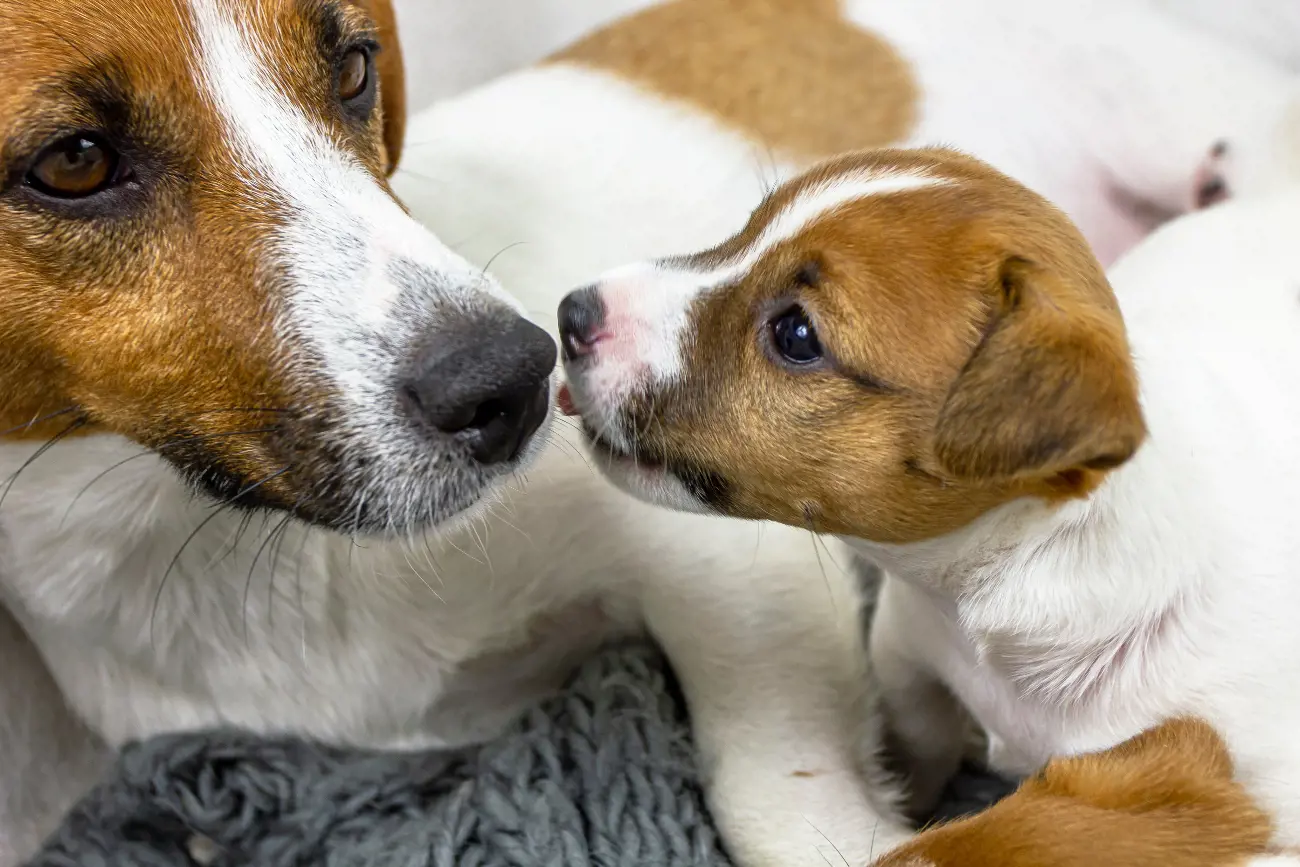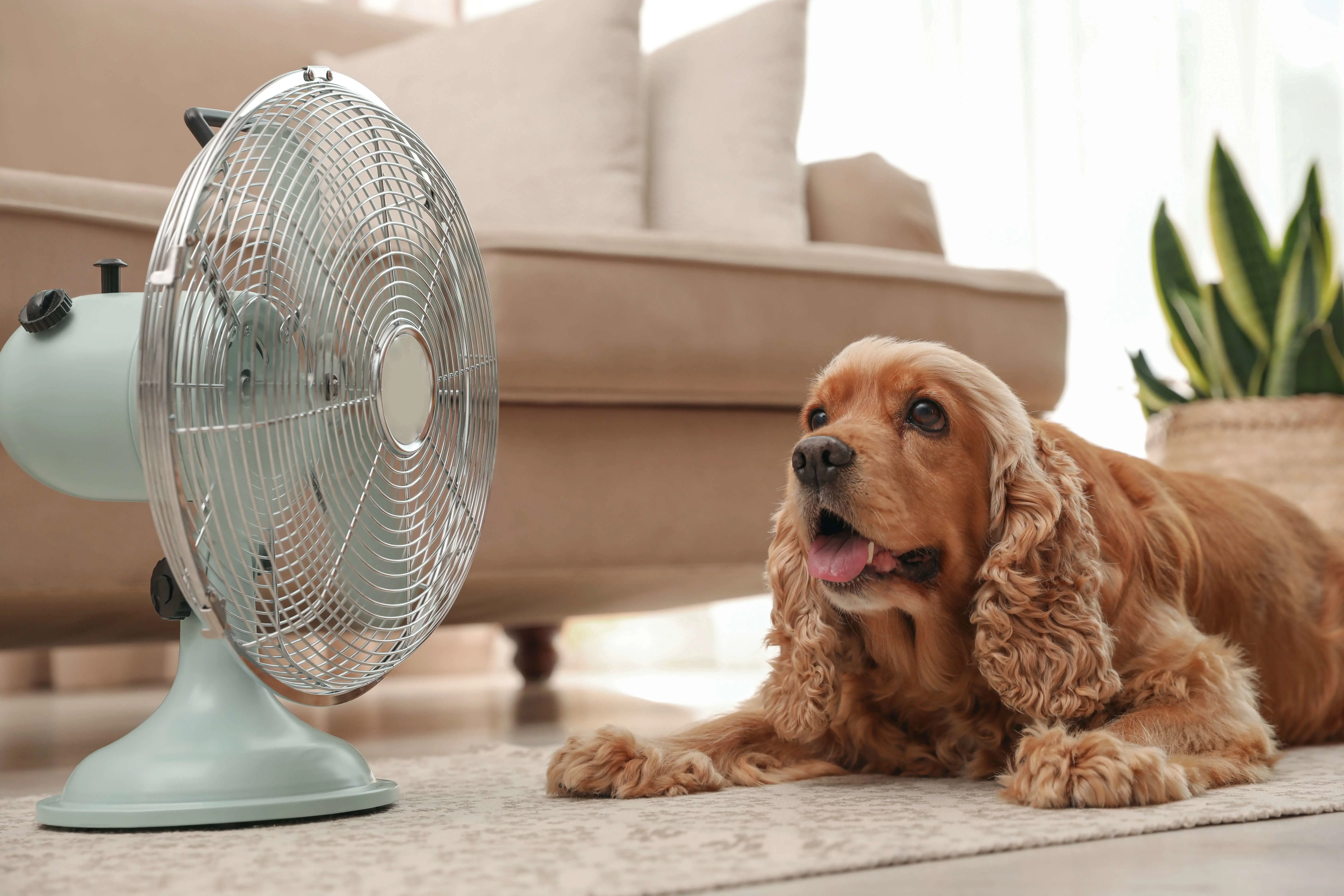Should I adopt a kitten or a cat?
12th December, 2022
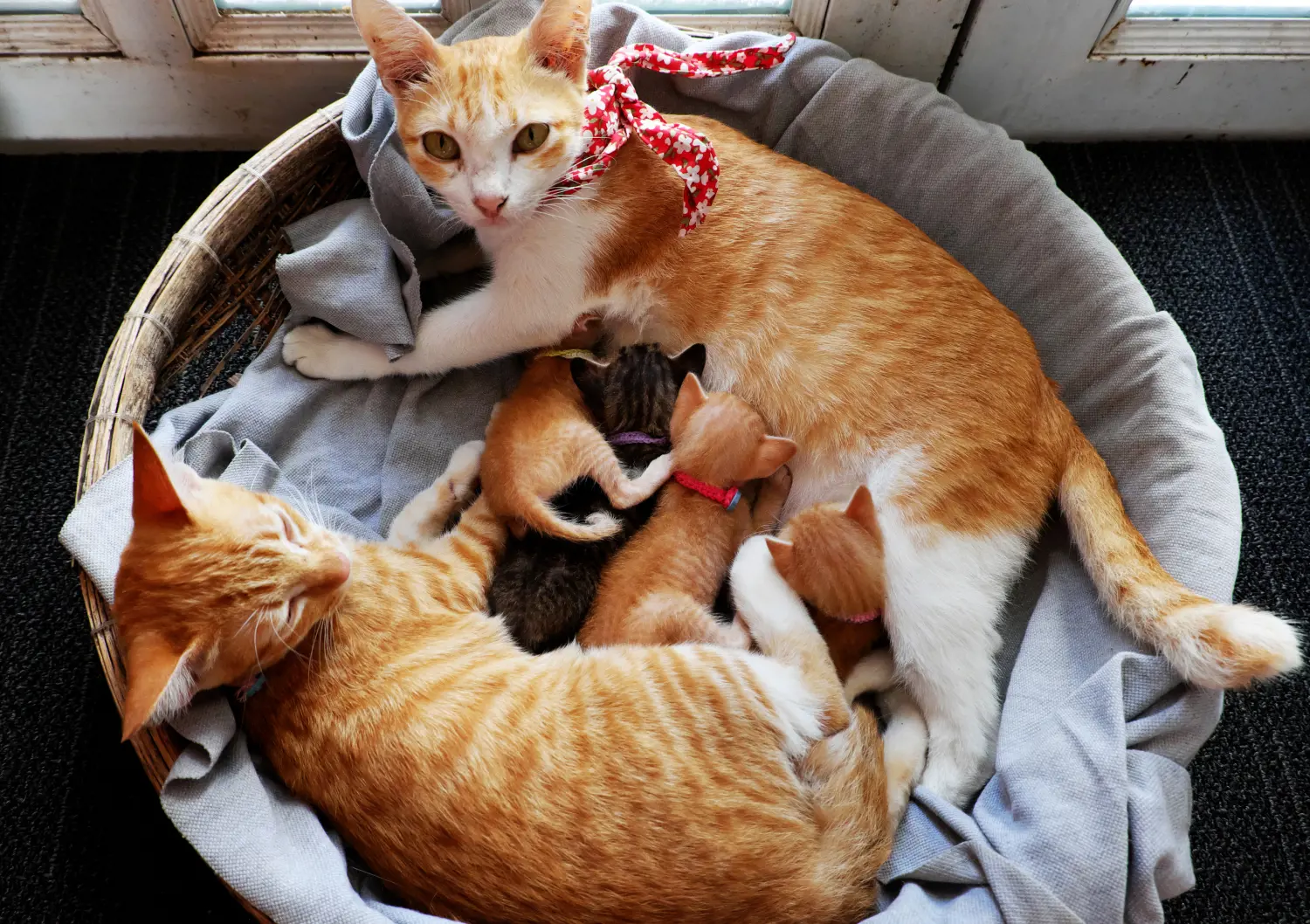
If you’re looking to adopt a cat but aren’t sure if a younger or older feline is the right fit for you, read on! We’ll weigh up the pros and cons of both and give you tips on where to find your new family member.
Choosing to adopt a cat is a wonderful decision for so many reasons. You help an abandoned cat find its forever home and could even be saving its life from .
Once you’re sure you’re ready to adopt, it’s time to decide on which type of cat is right for you.
Kittens are difficult to resist with their adorable furry faces and bundle of energy, but adult felines can also be keen on a cuddle and are less likely to cause mischief.
Are you finding it hard to choose between the two? Don’t fret!
In our ultimate guide to adopting a kitten or adult cat, we compare the advantages and disadvantages of both and look at what to expect when it comes to health concerns.
You’ll also discover the best places to adopt cats and what you need to buy to make your home feline friendly.
Adopting a pet is a big step and one that can be costly if you haven’t got the right health protection in place. This includes finding cat health insurance to protect your animal in case of an accident or injury.
How much does it cost to keep a kitten or adult cat?
One of the biggest reasons pet parents decide to adopt their new furry family member rather than buy from a breeder is the price difference.
Pedigree kittens can cost around £1,300 or more when buying privately, whereas some older cats can be as little as £80 from rehoming centres.
Is there a difference in price when adopting a kitten versus an adult cat? The initial cost might be a bit higher with younger pets. If you adopt from The Blue Cross, for example, you can expect to pay the following depending on their age:
- £150 for kittens under a year old
- £125 for cats between 1-5 years old
- £100 for cats over 5 years old
While buying a kitten from a breeder may mean you need to get them vaccinated, microchipped, and neutered yourself, those from rehoming centres usually already come with everything done.
This means that once you’ve adopted your feline, however young or old, the cost of keeping them should be similar. According to Battersea, the average cat will set you back around £1,500 a year.
You may save more money in the long run by protecting your feline with cat health insurance.
Some pet owners find that paying a manageable monthly fee makes it much easier to cover treatment in an emergency, rather than be faced with large and unexpected vet bills.
Kitten vs adult cat - what are the pros and cons?
Whether you adopt a kitten or an adult cat, you’re welcoming a homeless feline into your loving household. There are so many reasons to get a cat, whatever their age, and both kittens and adults come with their advantages.
Take a look at the pros and cons of moggies, young and old, below.
Adopting a kitten
Kittens need lots of training, but this means you can teach them to do things the way you want. You need lots of time and patience to train them, and they also demand lots of attention to please their sociable side.
When you get a kitten, there’s no knowing how they’ll turn out as an adult, as they don’t tend to form their overall character until they turn one.
They are easier to bond with, though, as you’ll be raising them from a very early age.
Adopting an adult cat
Adult cats might not be quite as cute as their younger counterparts, but they are less likely to be mischievous and are usually calmer and more settled.
Depending on their personality, which should be well established by now, they may like to curl up on your lap or by your feet.
You might also be able to find out more about what food they like, toilet habits, and character, which can help them settle into your home.
If you live in a quieter household, you might want to consider a mature moggy. Senior cats are less likely to wander far from home and won’t usually disturb you during the night.
Keep in mind that although their personalities are now well formed, they may have bad habits that will be much harder to break than with a kitten.
Older cats can also prove more difficult to train if they are already set in their ways.
Weighing the pros and cons of kittens vs adult felines
|
Kitten pros |
Adult cat pros |
|
Fun and playful |
More settled and less mischievous |
| Can teach them the way you want |
More likely to cuddle on the sofa |
|
Easier to bond with |
Well-established character so you know what they like |
| Ideal for quieter households - especially cats over 7 years | |
|
|
Less likely to wander far |
|
Kitten cons |
Adult cat cons |
|
Time consuming |
May have bad habits |
|
Can't predict their adult personality |
More difficult to train |
|
Need all their vaccinations |
More likely to have health problems as they get older |
Common health problems with kittens
If you’re set on bringing a small kitten into your home, you need to take good care of their health. Their immune systems are still forming, making it easier for them to develop certain illnesses and catch viruses.
As a responsible feline parent, it’s important to know what to look out for so you can get them help when they need it. The following are common health problems in kittens:
Upper respiratory infections
Look out for sneezing, a runny nose, and yellow discharge from their eyes. An infection is serious if they refuse to eat and are having difficulty breathing.
Distemper
This is a serious and possibly lethal virus that attacks your kitty’s immune system. If you spot vomiting, no appetite, and white mucousy diarrhoea, get them to the vet immediately.
It’s important you stay up to date with vaccinations to avoid this deadly health issue.
Coccidia
Your vet will need a stool sample to diagnose this rare intestinal parasite. Your cat may suffer from diarrhoea, dehydration, and lack of appetite.
Intestinal worms
There are a variety of different worms, like hookworms, roundworms, and whipworms. Kittens can get very ill from these parasites and find it difficult to thrive due to weight loss and diarrhoea.
Ear mites
These little critters spread similarly to fleas and are tiny. You can spot the issue when your pet shakes their head and scratches their ears a lot. You might notice a crumbly white residue in the ear, which is digested blood from the mites.
Fleas
This common pest is easy to treat once you identify the issue. You’ll see your cat scratching a lot and possibly notice hair loss on their backside. You might also spot what looks like pepper, known as flea dirt.
To lower the risk of health issues, feed your kitten a balanced and nutritious diet and make sure you take them for regular check-ups with the vet.
Alleviate the financial pressure when seeking treatment for your pet in an emergency with cat health insurance and consider a pet health plan to spread the cost of routine care like vaccinations and flea and worming treatments.
Common health problems with adult cats
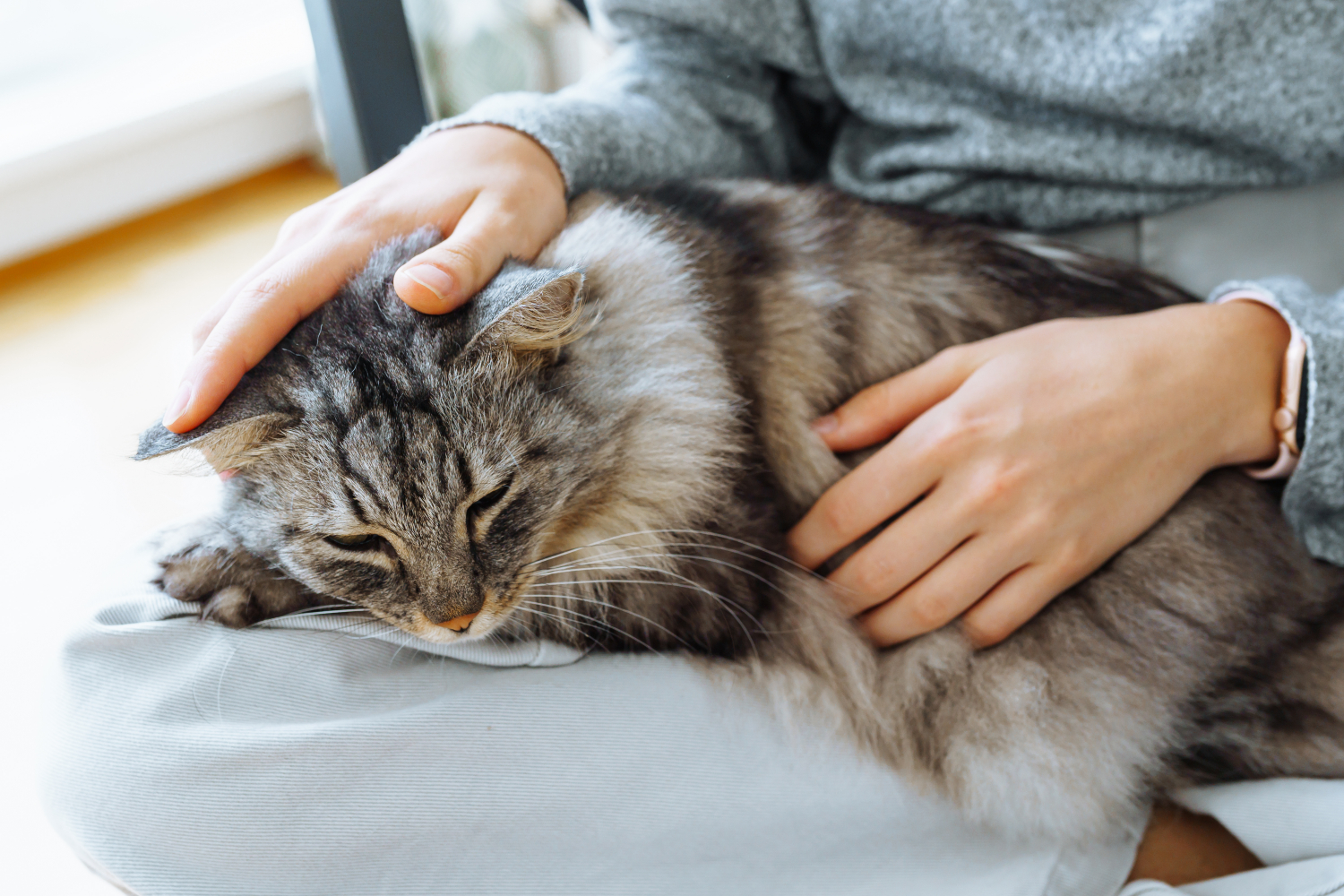
Throughout the first years of adult life, your feline may also suffer from fleas, worms, and other parasites, just like when they were a kitten.
As they get older and reach the senior years of their life, you may notice they start slowing down and experience more health problems.
Instead of dismissing their behaviour as part of getting old, be wary of the following conditions and get them seen by a vet if necessary.
Arthritis
This condition is extremely common in felines and causes joint inflammation. You may think your cat is just becoming slow and stiff, but it can be very painful for your pet, so always get them checked.
Oral disease
Dental issues are some of the most common health concerns as cats age. Watch for signs like bad breath, not eating properly, and weight loss.
Hyperthyroidism
An overactive thyroid means your cat’s metabolism works faster than it should, which usually means weight loss, increased appetite, vomiting, and diarrhoea.
According to Cats Protection, if left untreated, hyperthyroidism can damage other organs.
Diabetes mellitus
When felines enter middle age, they are more prone to this disease that affects their blood sugar levels. Your pet may seem weak and lethargic and be weeing more than normal.
Kidney disease
Another one of the most common problems in older cats is kidney issues. Unfortunately, damage is irreversible, but your feline can enjoy a good quality of life with the right treatment from a vet.
Cancer
Just like humans, cats can get cancer in many parts of their body. Look out for weight loss, vomiting, diarrhoea, depression, increased thirst, and more urine.
Cat health insurance is essential throughout every stage of your pet’s life, and at Purely Pets, we have no upper age limit, so even the most senior moggy can be insured.
Don’t skip their regular health check-ups either. These vet visits can identify serious medical issues before they become too serious, making them easier to treat.
As a Purely Pets policyholder, you’ll be able to take advantage of our 24/7 vet video consultation service if you’re worried about your cat.
Should I adopt a cat?
Adopting a cat is a big decision. Are you 100% sure? Ask yourself these questions:
- Are you able to cover the cost of cat health insurance, routine treatments, and all the food and equipment your pet will need throughout their life?
- Do you have enough time to give them 30 minutes of daily play, feed them, and clean their litter tray?
- Are you prepared to adapt to your cat’s personality? They don’t all like to be picked up and stroked.
- Is a feline the right pet for every member of your family? Not all people are cat people, and some might be allergic, but there are also circumstances where a moggy can be beneficial to their owner and vice versa.
- If you’re in rented accommodation, are you allowed to keep pets?
- Is your home big enough for pets? Many potential owners believe their cat will be happy to spend a lot of time outdoors, but not all felines are the same.
If you can’t answer yes to all these questions, you might need to wait to adopt a cat. The last thing you want is to bring one home only to return it to the adoption centre a few months down the line.
Where can I adopt a cat?
Throughout the UK, there are a variety of organisations and charities that rescue cats of all ages. You can find the perfect feline friend for your family at one of the many rehoming centres.
Adopting your cat, rather than buying it, means you’ll be giving a pet in need a home and also making space for more rescued animals without a place to live.
A good rehoming centre will make sure all their felines are:
- Vaccinated
- Up to date with vet checks and flea and worming treatments
- Microchipped
- Neutered
- Free of health issues where possible
When choosing your cat, the RSPCA recommends bringing the whole family to meet them at the centre to rule out any allergies. It’s also important to see how everyone interacts with the potential pet.
The organisation may then visit your home to give you some tips on how to create the ideal environment for the cat and keep them safe and happy.
Once you get your new family member home, you’ll be responsible for taking them for vet checks, getting them vaccinated, and taking out cat health insurance to help with any unexpected vet bills.
Should I get a female or a male cat?
As long as the cat is neutered, there’s not much difference between the sexes. Male cats who aren’t castrated are likely to mark their territory in your home and get into fights with other felines in the neighbourhood.
Females who haven’t been spayed may also pee on your furniture and carpet but also howl when in heat. You run the risk of an unwanted pregnancy, too.
Neutered pets are usually calmer and more loyal to their owners. They are also far less likely to wander far from home, making it important to check your moggy has been spayed or castrated before bringing them home.
The choice of male or female is ultimately up to you. They don’t look much different, and it mainly comes down to their personalities.
You can get a better idea of how one sex might trump the other in certain ways in our article about getting a male or female feline.
What do you need to buy when you bring a new cat home?
The cost of adoption may be low, but make sure you budget for the following when planning for the new addition to your family:
- A cat flap – This feline essential allows your pet to go in and out of the house as they please. Battersea recommends a microchip model that reads your cat’s chip and only lets them inside.
- Food – You need food specifically for cats that contain all the nutrients they need. Most adult felines eat around 20g of dry food and two pouches of wet food every day.
- Litter tray – Your cat may prefer to go to the toilet outdoors, but it’s still a good idea to have a permanent litter tray set up indoors. Make sure you scoop out solids daily and give it a wash and complete change once a week.
- Cat bed – Felines love somewhere to hide and snuggle up inside. There are plenty of beds and dens available to choose from to keep your cat cosy.
- Scratching post – This item is essential if you want to keep your sofa and carpet intact! Felines scratch their claws to keep them sharp, mark their territory, and stretch their muscles.
- Toys – Cats are playful creatures and can become stressed if they can’t please their need to hunt. Small mice and balls are great fun for them to pounce on, and dangly fishing toys can help you and your feline friend bond.
- Cat health insurance – Despite doing all you can to keep your feisty feline in tip top shape, they can still suffer from an accident or sudden illness. A cat health insurance policy protects your pet and helps you financially when faced with unexpected costs.
Over time, you can build up their toy collection and buy other items like a cat carrier for trips to the vet and grooming tools.
You also need to budget for routine care like annual vaccinations, check-ups, and flea treatments. These aren’t usually part of cat health insurance plans but are crucial to keeping your feline as healthy as can be.
How to introduce a kitten to an older cat
If you already have an adult cat at home but are hoping to adopt a small kitten, you need to make sure the introduction goes as smoothly as possible.
While the youngster will be more than happy to meet a new playmate, your older pet might not feel the same. However, it’s better to bring a new kitten into your home than another adult, as two seniors may experience a personality clash and see the other as a threat.
So, what can you do to make the transition easy for both your young and old cats?
- Give your senior pet plenty of space away from the younger cat.
- Put barriers in place to stop the youngster from bothering the adult cat.
- Keep giving your older feline the same love and attention you always did.
- Tire out the kitten to make it more likely to leave the ageing cat alone.
- Make sure you have separate beds, bowls, litter trays, and toys.
- Feed them apart and at different times as they will need specific food for their age.
- Get cat health insurance for both pets in case of an accident while they get to know each other.
Can I bring more than one cat home?
Yes, of course you can bring more than one cat home, but you’ll need to be careful when choosing the right pair.
Older cats who have lived alone all their life are unlikely to take to a new feline friend well. They don’t have the need for a new companion and are usually happy being the only cat in the house.
If you do want to get yourself more than one pet, consider getting kittens that are siblings. They already have a close bond and have been together since the moment they were born.
Alternatively, you may be able to find a couple of adult cats that have always lived together and will do much better as a pair rather than being separated.
When you adopt more than one feline, make sure they each have their own:
- Food and water bowls
- Sleeping areas
- Litter trays
You’ll also need to get cat health insurance for both pets to make sure they can both get emergency care when necessary.
Protect your new feline with cat health insurance
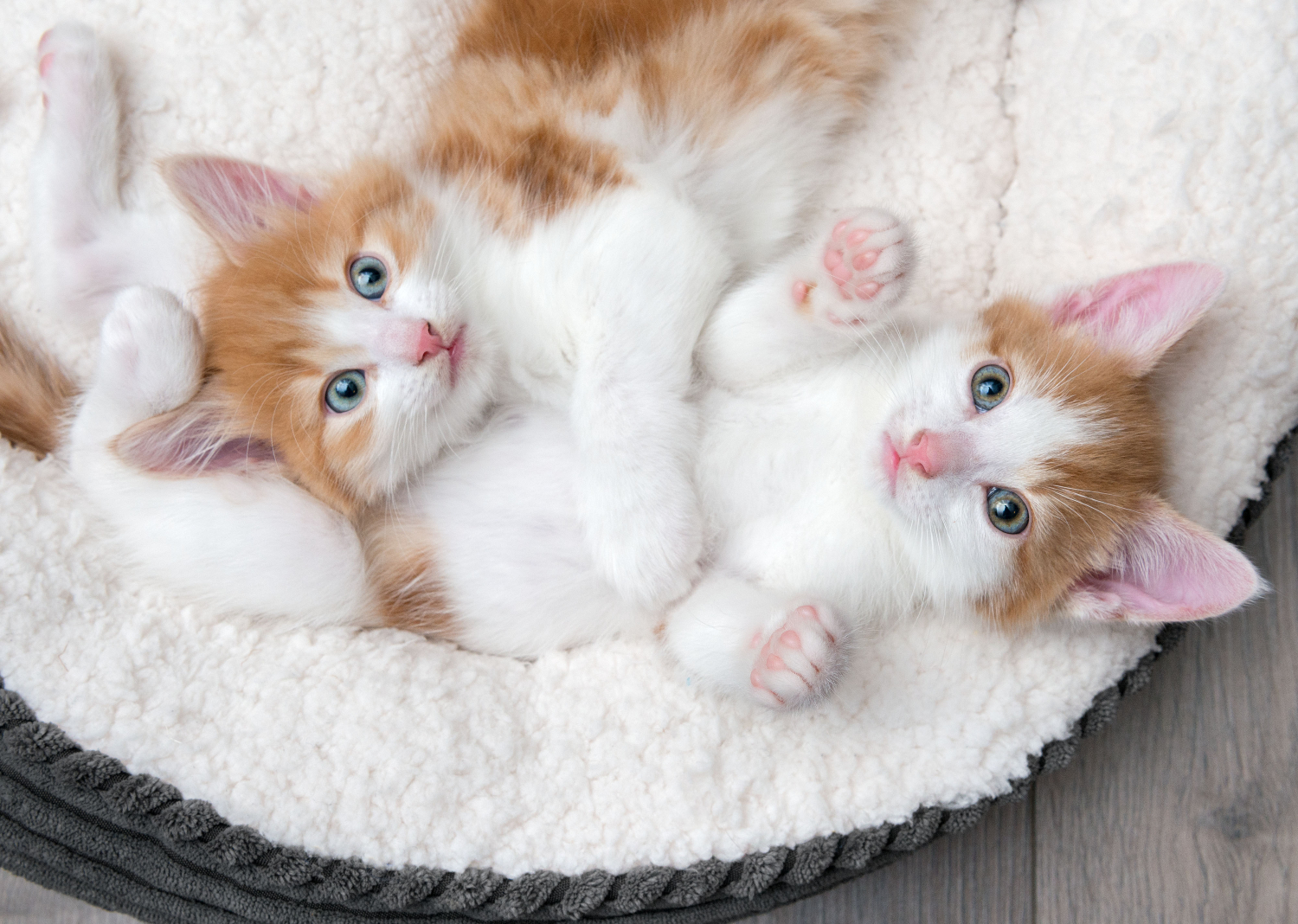
Whether you adopt a playful kitten or a golden oldie, your new cat will need you to take good care of it.
As well as a nutritious diet and plenty of exercise opportunities, your feline friend needs to be protected with cat health insurance.
At Purely Pets, we understand what an important member of the family your cat is, which is why we offer 15 levels of lifetime cover to choose from.
Our policies are easy to manage through our online portal and come with unlimited access to a vet video consultation service for quick, professional advice.
Protect your cat with our award-winning pet insurance today.
Helpful Pages
Recent Posts
Pet Insurance Quote
- 98% claims paid *
- Claims paid directly to vets
- 24/7 vet video consultations
- Interest free monthly payments
